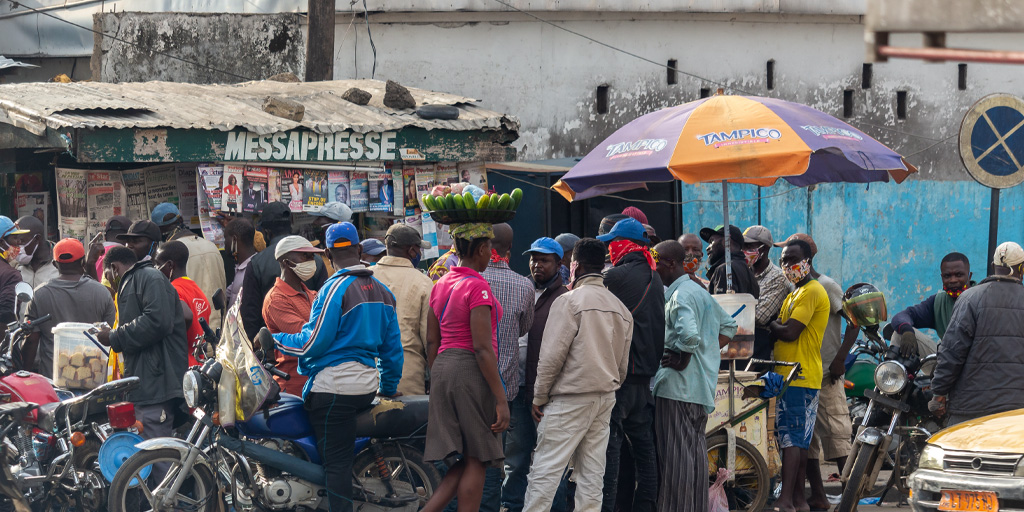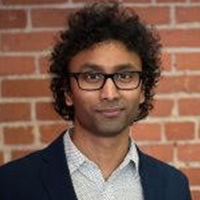
In a recent conversation with an elderly friend who’d received a COVID-19 vaccination, I asked: “What does it feel like to be vaccinated?” She said, “It feels like we finally matter in this world.”
What if every human could have immunity against every known disease? No more zika. No more measles or mumps. No more HIV and so no more AIDS. No more dengue or herpes or ebola. And the scary and extremely transmissible COVID-19 is gone from everywhere in the world – including the global south. Wouldn’t that be amazing?
International Development Week 2021 is wrapping up, and while Canada’s foreign assistance and development largely prioritizes addressing gender, education and economic inequality, there is a more pressing type of inequality on the rise.
And that’s immunity inequality.
Never before has immunity become so inextricably linked with both global and economic inequality. And it’s telling that the 10 countries that have administered the most cumulative COVID-19 vaccination doses per 100 people to date are Israel, the U.K, U.S.A., Spain, Italy, Germany, Belgium, Canada, France and Netherlands – all in the global north.
Dubbed the “inequality virus” by Oxfam International, Oxfam India CEO Amitabh Behar noted that “the gap between rich and poor can’t be resolved without deliberate inequality-busting policies, and too few governments are committed to these.”
Where does Canada stand on this?
Among many of Canada’s foreign assistance and development initiatives, from FinDev Canada to the Sovereign Loans Program, Canada’s feminist approach to development, backed by Canada’s Feminist International Assistance Policy (FIAP), is the connective tissue of its development work. FIAP is the extraordinary result of a year of consultations involving more than 15,000 people in 65 countries. FIAP is a forward-looking development policy that has received much praise from around the world. Yet how far will Canada’s development priorities go in a pandemic-stricken world if it doesn’t prioritize immunity for all, especially women?
International Development Minister Karina Gould’s supplementary mandate letter from January notes that in light of the demands COVID-19 has placed on front-line health workers and the disproportionate impact this has on women, “(Gould should) continue to develop programming that recognizes, reduces and addresses the unequal distribution of paid and unpaid care work, and that supports and protects the rights of paid and unpaid care workers, to address a root cause of global inequality.”
It also states: “with the support of the Minister of Foreign Affairs, the Minister of Public Services and Procurement and the Minister of Health, (Gould should) reinforce international efforts to ensure that people around the world have access to health interventions to fight COVID-19, including vaccines, therapeutics and strengthened health systems.” This sounds promising.
Except that earlier this month, Canada became what appears to be the losing party in a global vaccination procurement battle. It was the first G7 country to draw from COVAX, the global vaccine-procurement initiative co-ordinated by the World Health Organization, the Coalition for Epidemic Preparedness Innovations and Gavi, The Vaccine Alliance – whose primary mandate is to support equitable access to COVID-19 vaccines.
Although Canada bought into COVAX last September to also secure doses for Canadians, Prime Minister Trudeau’s emphasis for the purchase at that time was, “that the number of countries that have stepped up and participated like Canada is ensuring that we’re going a long way towards having a vaccine accessible for the most vulnerable around the world, which is essential as we move forward to get past this pandemic.”
Something doesn’t quite click.
Yes, the minister’s supplementary mandate letter notes the link between immunity and global inequality. And, yes, it seemed like Canada publicly emphasized support for the global south first with its COVAX buy-in. However, even though it is in the top 10 countries to administer vaccinations, it is also the only G7 country to draw on the supply from a global pool primarily meant to ensure equitable vaccine access.
It looks like the global south may be the last to have immunity against COVID-19. When will that be? In two years? Five years? A decade? Your guess is as good as mine. We don’t have a clue.
To date, no country has declared immunity for all a priority. And that’s a problem.
The coronavirus pandemic swept across a world that was already unequal – a world where nearly half of humanity lives on about $5 a day. According to Oxfam International, “the coronavirus pandemic has the potential to lead to an increase in inequality in almost every country at once, the first time this has happened since records began.” COVID-19 has exposed and amplified existing inequalities of gender, health, employment and race. More than two million people have died and hundreds of millions of people are being forced into poverty.
The pandemic has revealed the inability of our unequal international assistance systems to work for all. Oxfam International’s survey of economists in the global south on the impact of the pandemic found that 87 per cent think the pandemic will lead to an increase – or a major increase – in income inequality in their country. Clearly, immunity matters.
Canada already supports routine immunization initiatives in Central Asia and Africa for polio and other communicable diseases but Canada’s commitment to global COVID immunity will have a significant bearing on the lasting impact of our feminist development policy. We already know that the virus disproportionately affects paid and unpaid care workers, precarious workers, frontline workers and women. COVID immunity matters for visiting loved ones, accessing and continuing education, travel, accessing public and social services, and for decent work as employers will begin to require new hires and employees to be vaccinated.
Securing millions of doses of the COVID-19 vaccine is one of the most complex jobs the Canadian government is doing right now. Let’s maximize our efforts for all. Hundreds of millions of people, especially women and girls, will have unequal access to resources and opportunities as a result of the pandemic – and not having COVID-19 immunity. If Canada wishes to continue to be impactful post-pandemic, let’s prioritize immunity for everyone so that we have a global recovery that works for everyone.
Photo: The streets of Douala, Cameroon, April 2020. Shutterstock.com, by The Taxi Photographer









